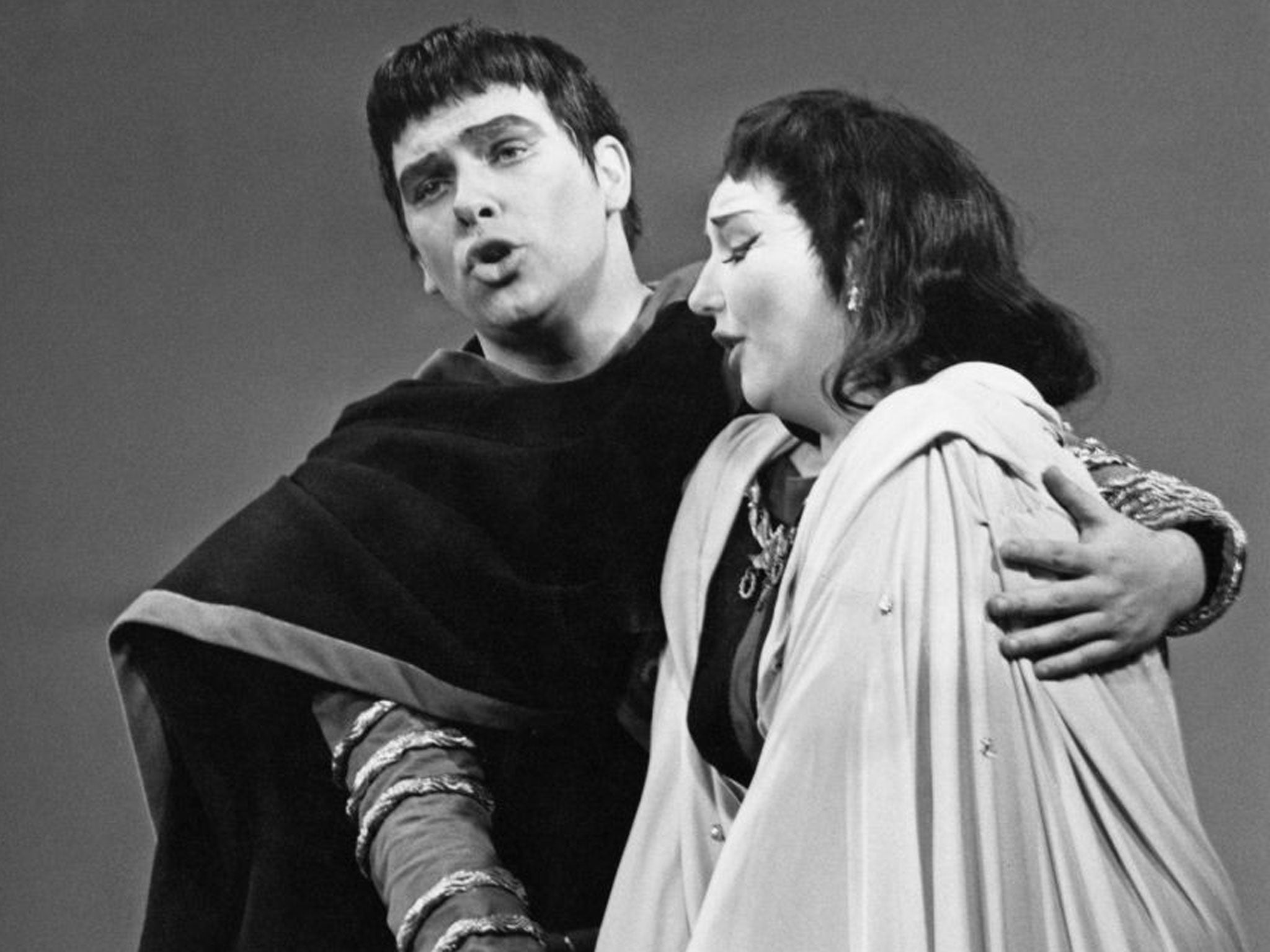Ava June: Lyric soprano equally at home with Britten, Wagner and Italian romantic opera
Her portrayal of Tosca in the 1970s was described by one critic as 'valiant and touching'

Ava June was a supremely versatile lyric soprano, equally at home with romantic Italian opera and in the works of Benjamin Britten. She also coached, conducted masterclasses, and produced and directed performances throughout the country and abroad.
She was born in Poplar, east London, where her mother was a tailoress and her father worked for the Johnnie Walker whisky company. On leaving school at 14, she worked as a theatre dressmaker, but at 16 began to take singing lessons with Kate Opperman: “She was the founder of my voice,” June said of Opperman in 2005. Joan Cross – “a very special lady” – was another influence at the then London Opera School, and it was she who introduced June to the music of Benjamin Britten.
In 1953, at the age of 19, June joined the chorus of the Sadler's Wells Opera, and at the Royal College of Music she won (as a mezzo-soprano) the Queen's Prize for 1955. From 1957 she was singing solo roles at Sadler's Wells, beginning with “a promising Musetta” in La Bohème, followed by The Foreign Woman in Menotti's The Consul. In 1958 she made her Covent Garden debut as the Heavenly Voice in Verdi's Don Carlos and when Fidelio returned a year later under Rudolf Schwarz, June, new to the role, sang Marcellina “with great strength and conviction”. She repeated the role in 1960 with a young Colin Davis in the pit.
Later the same year she was the May Queen in Edward German's Merrie England, and in 1961 Tatyana in Tchaikovsky's Eugene Onegin. In 1962 she took over the role of Violetta in La Traviata, followed by an appearance as a “dramatic, self-willed” Marenka in The Bartered Bride and Micaëla in Carmen. The following season began, in September 1963, with Der Freischütz, in which she sang the part of Agathe. The following New Year saw her as Ilia – “with ringing voice and warm personality” – in Mozart's Idomeneo, with Davis again conducting. Towards the end of 1964, she sang Butterfly, under Mario Bernardi, and in The Marriage of Figaro in spring 1965, under Charles Mackerras, June was a youthful, but dignified Countess.
In 1966 she gave a gracious, keenly sung portrayal of Rosalinda in Die Fledermaus, then Lisa in The Queen of Spades, but in an unfortunate production lacking imagination and emotion. In 1969 she was united at York with her mentor Joan Cross, who for Phoenix Opera produced a performance of Figaro, again with June as the Countess; and she sang Donna Anna in Don Giovanni at the Coliseum in John Blatchley's characterful production, with Mackerras conducting.
When Reginald Goodall's “English Ring” came to the Coliseum with performances of The Valkyrie, June was cast as a memorable Sieglinde, with Alberto Remedios as Siegmund; in The Rheingold later the same year, she was a fresh, feminine Freia, a role she repeated at Covent Garden in 1974.
In 1972 she sang opposite Don Garrard (later David Ward) in Duke Bluebeard's Castle, and was Queen Elizabeth in Britten's Gloriana, which she sang with great distinction and dignity. In this role she was said to recall, in both voice and appearance, the role's creator, Cross, who was in the audience to hear her protégé. Shortly after she was again Elizabeth, this time in Donizetti's Mary Stuart, with Janet Baker in the title role. In Britten's other operas, at various times, she was Ellen Orford, Lady Billows and Mrs Grose (later recorded with Colin Davis).
Her 1976 Marschallin at the Coliseum was “an impersonation of dignity and charm”; but in that year's Hoffnung Festival, in Let's Fake an Opera, she stripped as Salome, revealing herself to be Fidelio about to shoot Kenneth Woollam's Otello in Lohengrin's armour – “a sight once seen never to be forgotten”. She was later on more familiar ground in the title roles of Katya Kabanova and Tosca (“valiant and touching”), as Geneviève in Pelléas and Mélisande and in Rossini's The Barber of Seville as Berta.
She created roles in several new works, including Frau Schomberg in Victory by Richard Rodney Bennett (Covent Garden, 1970), Madame de Libertat and Grande Blanche in David Blake's Toussaint (ENO, 1977) and the Countess Vronskaya in Iain Hamilton's Anna Karenina (ENO, 1981).
In 1983 she began to teach, and in 1985 joined the staff of the Royal Northern College of Music. “Singers now do not realise how much work there is to do,” she said. “The voice not only has to come from the vocal cords, but from the body. You have to train to support the voice. When a performer approaches an opera, she has to study it from the very beginning, not only the music but the person she is portraying, the people around her, her theatre costume. It is a complicated study, and it is all very important."
Ava June, soprano, teacher and opera producer: born Poplar, London 23 July 1931; married David Cooper (died 1982); died London 22 February 2013.
Subscribe to Independent Premium to bookmark this article
Want to bookmark your favourite articles and stories to read or reference later? Start your Independent Premium subscription today.

Join our commenting forum
Join thought-provoking conversations, follow other Independent readers and see their replies